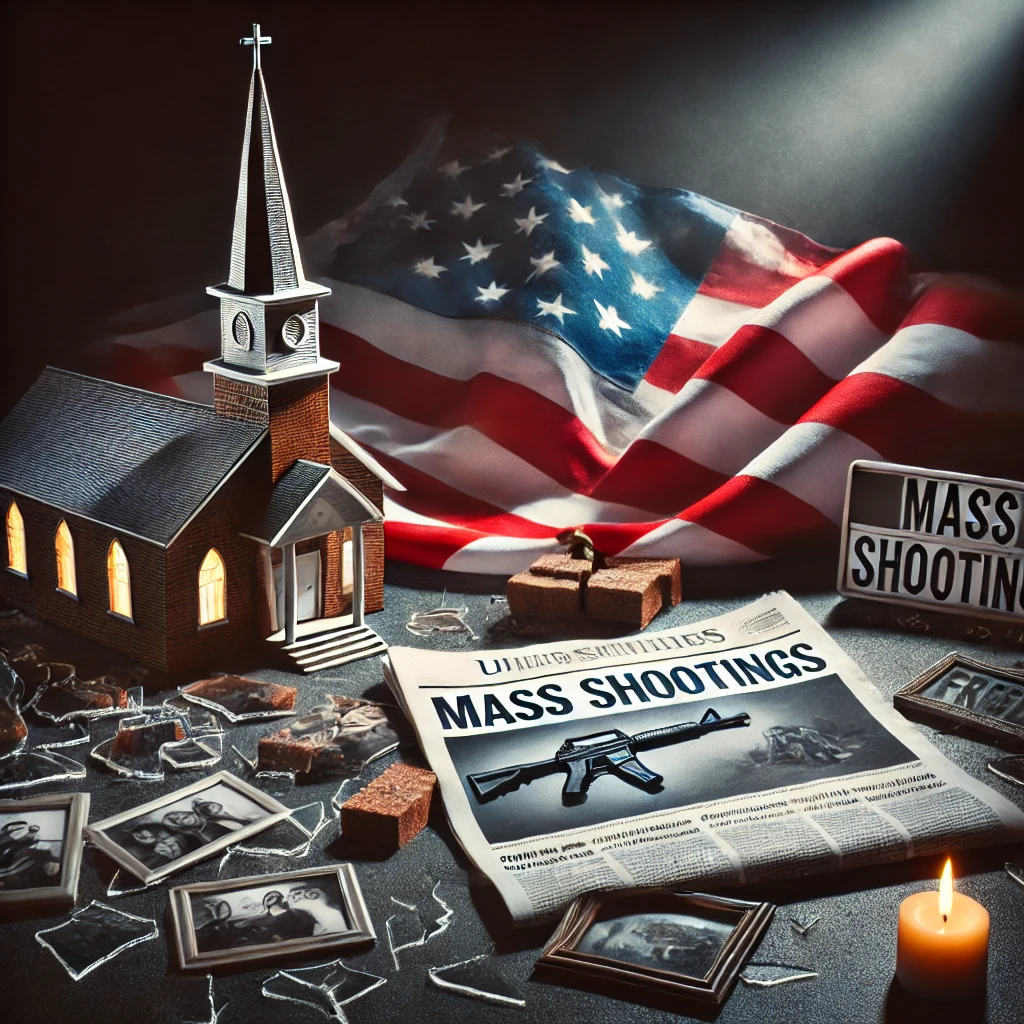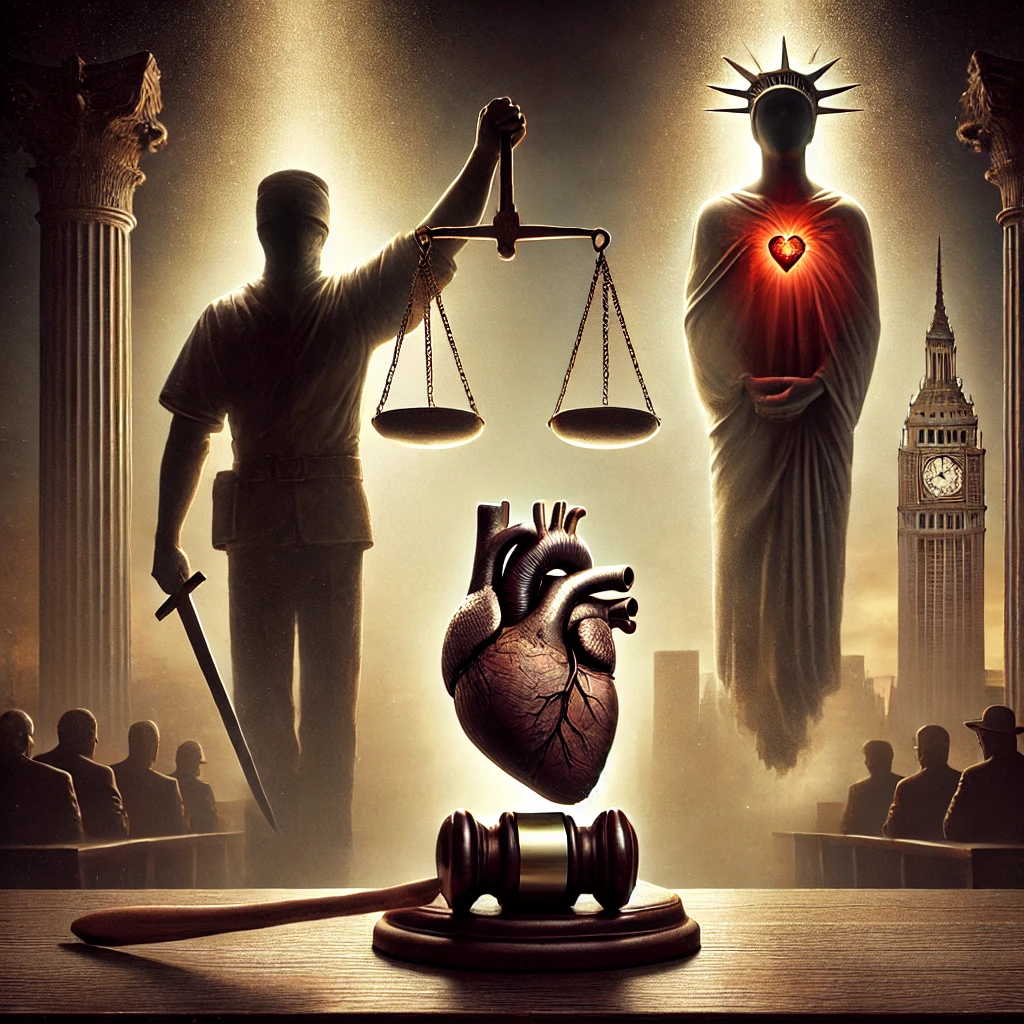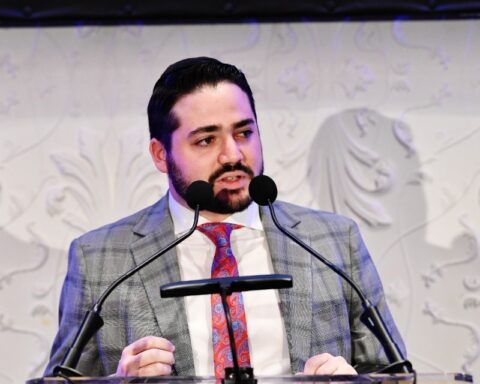The tragic massacre perpetrated by 26-year-old Devin Patrick Kelley at the First Baptist Church in Sutherland Springs, killing 26 people, is nothing short of unspeakable. Apart from terrorism, what drives a person to commit such horrific acts? We will hear about Kelley’s failed marriage, dishonorable discharge, conflicts with his former in-laws, and other personal grievances that may have contributed to his actions.
Similarly, Dylann Roof, who killed nine people at the Emanuel African Methodist Episcopal Church in Charleston, South Carolina, was fueled by rage at a society where racial and religious equality grants Black people and Jews the same rights and opportunities as white Christians. Then, there is Stephen Paddock, who killed 58 people in Las Vegas just last month. He reportedly spiraled into anger and despair after losing significant amounts of money gambling—something that the local sheriff called a “determining factor” in the deadliest mass shooting in modern U.S. history.
These tragedies raise difficult questions: Are these perpetrators angrier than anyone else in the world? Why do we see this tendency toward mass murder driven by personal anger or depression so often in the United States compared to other countries—if that is even true?
It’s essential to distinguish these acts from global mass murders motivated by politics, religious extremism, or terrorism. Here in the U.S., discussions inevitably return to gun laws. Some argue that stricter gun laws are necessary, while others maintain that firearms are not the root cause of this violence. Senator Al Franken remarked on CNN that “this is a gun issue.” He is correct in that guns were the chosen weapon, but they were not the driving force behind these crimes. Gun-control advocates argue that firearms make it easier to kill, which holds some truth. Yet, as I have written before, those determined to kill have always found a way to do so, regardless of the weapon’s availability.
Even if new laws were passed today limiting firearms, it is unlikely they would prevent a would-be criminal from acquiring one. However, this does not mean that Second Amendment supporters cannot have a rational discussion about restricting civilian access to automatic weapons and other firearms designed for military or law enforcement use. We should apply stricter licensing criteria for high-capacity and rapid-fire weapons, similar to those for handguns. The NRA’s claim that any restriction on gun ownership is a step toward repealing the Second Amendment is an extremist position designed to incite fear and prevent reasonable discourse.
These debates often overshadow the deeper societal issues we Americans prefer to ignore. We live with cognitive dissonance, torn between what we know and what we want to admit. In my view, this epidemic of violence is not primarily about access to guns—it is about our culture of entitlement.
The United States was founded on personal liberty and freedom, unlike countries governed by socialism or monarchy where freedoms have inherent limits. Over the past 250 years, that foundational emphasis on individual liberty has, in some cases, morphed into a destructive sense of selfish entitlement. When faced with personal setbacks, some people respond with violence, blaming others for their pain and seeking revenge without regard for the consequences.
This perspective may seem simplistic or even unpatriotic to some. Yet, consider how our values have evolved. We have fostered an entitlement culture, becoming addicted to it over generations. Many able-bodied individuals receive—and come to expect—welfare payments, SNAP benefits, subsidized housing, and free or reduced-cost healthcare through social services.
Meanwhile, the millennial generation has been characterized by some, including Time magazine, as a uniquely narcissistic group, one that is “growing up without an establishment to challenge.” We also reward entertainers far more than educators and often take moral guidance from wealthy celebrities living in gated mansions. Trade unions have weakened through stubbornness and shortsightedness. Our politicians prioritize personal gain, engaging in gerrymandering and pork-barrel politics to maintain power indefinitely. At the same time, authoritarian bureaucracies resist ceding control.
We glamorize CEO-billionaires who achieve success through increasingly easy access to wealth, turning them into role models. I know of someone who idolized criminals portrayed in shows like Billions and The Wolf of Wall Street, missing the central message that these characters harmed countless people to enrich themselves.
Human beings are inherently selfish. We must consciously work to suppress that trait. When life disappoints some individuals—through heartbreak, financial loss, job displacement, or societal change—entitlement may trigger a belief that they “deserve” restitution, leading to the horrifying conclusion: “They all deserve to die!”
This is the real issue at hand. We refuse to confront the failings within our own homes, educational systems, leadership values, and cultural priorities. Instead, we blame guns. Both those calling for outright gun control and those resisting any change are being intellectually dishonest. The media exacerbates this by framing the issue in binary terms, avoiding deeper analysis.
Until we acknowledge how our selfish entitlement culture contributes to these tragedies, we will continue to see gun violence perpetrated by people who feel that life, society, and the world owe them something—and who seek to make others pay for the perceived injustices against them.






